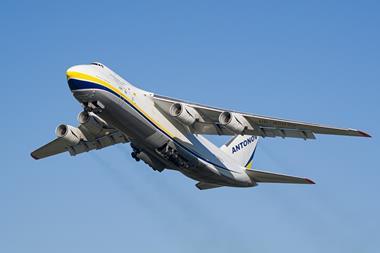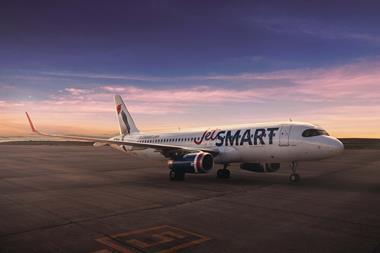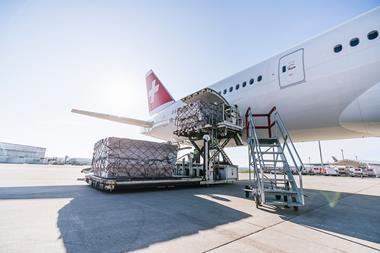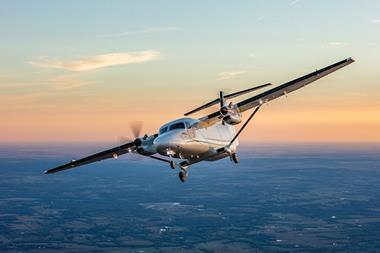
The airfreight market is going back to pre-pandemic levels and acting in a self-destructive manner, warns Frank Ziesemer, CEO of Strike Aviation Group, an international air cargo company and GSSA.
Ziesemer says that despite the current market challenges, investment in technology and human resources will also define the future of the air cargo industry.
“I am pretty sure that some of the air cargo carriers which are investing heavily in technologies and human resources will set the new standard for the entire air cargo industry,” Ziesemer notes.
Among the current trends affecting the air cargo industry, states Ziesemer, is the excess of new aircraft entering the market without a clear strategy for passenger or freighter market segments.
He warns: “During the pandemic, everybody was looking out for freighters, because passenger aircraft were grounded. So the airlines shifted towards cargo aircraft without any clear strategy, just to satisfy the market’s needs.
“Currently, air cargo carriers increase frequencies and capacities to gain market shares. Some of them do it without calculating the costs or profit and loss and without receiving any state aid, which could lead to unforeseen difficulties.
“However, air cargo carriers investing heavily in technologies and human resources will set the new standard for the entire air cargo industry.”
There is also overcapacity in the passenger bellyhold market, says Ziesemer, with airlines coming back to the pre-pandemic schedule and acquiring new and larger aircraft, for instance, the Airbus A350 rather than the A330.
“Airlines like Iberia, and Finnair went back to the pre-pandemic schedule, and with the new aircraft, they doubled their capacity, especially in the North Atlantic region. This all results in lower rates.”
According to Ziesemer, another trend that will have a significant impact on the global airfreight market is that several passenger airlines, such as Jet Blue, are purchasing new narrow-body aircraft (A321 XLR/extra-long range) to serve the North Atlantic market.
“These aircraft can fly non-stop over the Atlantic, which means that they will begin to operate on routes from the North East US and Canada to Europe, such as London, Amsterdam, Madrid, Lisbon, and Paris.
“Because these aircraft do not carry as much air cargo as wide-body aircraft, they will have a remarkable and positive impact on airfreight prices.”
In the next five years, according to Ziesemer, this action will “significantly reduce” the air cargo capacity on the North Atlantic routes between Western Europe and the north east regions of Canada and the US, as well as from Europe to the Middle East.
Therefore, he argues, integrators like FedEx and UPS will profit from this move and enhance their positions in developing countries, as well as airlines like Air Canada because they have a mixed fleet of freighters and passenger aircraft.
The Strike Aviation company, he observes, has a strong position in the market because it “adheres strictly to the business plans of the airlines we represent and serves as a practical tool to develop those businesses”.
Says Ziesemer: “Our main target is to help airlines in fulfilling their cargo budgets. Strike Aviation develops new routes and combinations of routes to increase the profitability for the carriers we represent.
“We anticipate creating new routes for our carriers and focusing on high-yield niches. I also believe that Strike Aviation is on its way to becoming the market leader when it comes to human resources and technology.”
He contends that the absence of educated specialists in the air cargo sector is the main reason why it is difficult to satisfy markets. He states that Strike Aviation has an advantage because it dedicates time to educate people internally.
“We attract young professionals by offering them the education, and they can improve their skills by working for our company. As a result, these specialists have the most extensive backgrounds in our business. Thus, we give our represented carriers a significant advantage by providing a team of competent personnel.”
As regards technologies, Ziesemer says that artificial intelligence (AI) will play a bigger role in the airfreight sector, but only if operational industrial standards are implemented and enforced in markets like Latin America and Africa.
“The EU, North America, and China's populations are over aged, while Latin American and African countries, with their young population, offer more promising opportunities. At the same time, technology with the human factor and capital will work out for the benefit of all continents.”










